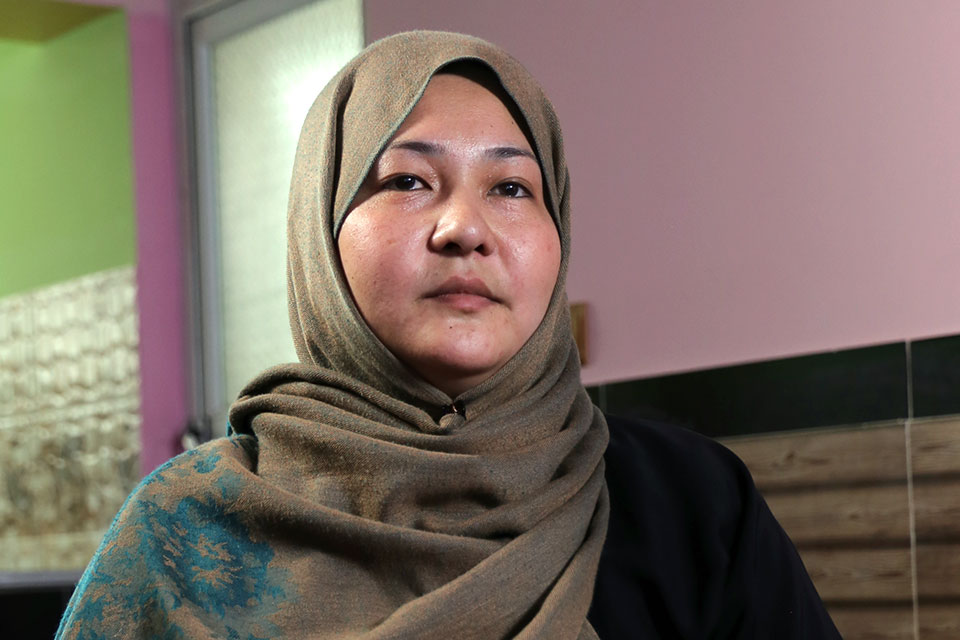In the words of Halima Askari: “Our victory is our unity”
Date:

Halima Askari became the first woman head of the Provincial Council in Afghanistan’s conservative Wardak province in 2017. She is part of a new generation of women leaders who, little by little, are pushing for the transformation of governance. She ran for national Parliament this year and is awaiting the results. Regardless of the election results, Askari is determined to continue serving her community and advocating for girls’ and women’s education. Having attended UN Women-supported leadership and management training, in a recent interview she talked about what it means to be a woman in politics in Afghanistan. UN Women’s political participation programme in Afghanistan was made possible by funding from the governments of Iceland, Sweden and Norway.

We are living in a male-dominated society where women are denied opportunities simply because they are women. There is a perception that women should not go out, not go to work, not go to school. But we are encouraging women to do all of these things.
It was really challenging for women to get top leadership roles in the provincial councils. Most of the time, women on the councils function as the secretary; all the higher leadership roles are held by men. Then there is the security challenge. Women don’t want to be in public offices because they are afraid they will be killed by people who oppose their presence.
We as women have a difficult task ahead, but we are learning not to back down when there are barriers.
Our first enemy is perception. All of us need to change this, and it might take a long time and a lot of struggle and energy. When it was announced that I would run to lead the Provincial Council, the former chair stood up and said to everyone: “How will you answer to God that you elected a woman to lead you? We haven’t seen women in this role—how can we be assured they can do it?”
In Wardak, women within the council, regardless of our different backgrounds, agreed to unite around winning the top leadership positions, including the chair and vice-chair roles. Our coalition, when it achieved what we wanted to do, resulted in greater awareness and confidence. We heard from people who said we have so inspired them that now they will let their daughters go to school.
At one point, we had to choose between constructing schools and water storage tanks. A lot of arguments went back and forth. Most men wanted the water storage tanks. We were arguing that if we build schools and clinics, we will have healthy, educated people. They will understand the importance of water tanks and road construction. But if we have a tank, people right now will not know how to maintain it, and it may be detonated by anti-government elements. We need to educate communities first, so they can safeguard and manage these projects in the future. We now have schools and clinics under construction.
I can be optimistic about women transforming governance in Afghanistan, but certain obstacles need to be overcome. First, women are disconnected from each other. Second, international aid is concentrated on women who have come from outside, which is not sustainable. Third, aid is concentrated in bigger cities but not in some of the provinces where women are most vulnerable. If these things are addressed, we will have empowered women who can be effective leaders.
It is not enough to be in a leadership role and tick a box and the mission is done. We as leaders have to provide the opportunity for other women to follow the same path.
My message for women is: don’t be afraid of failure. If you cannot achieve something, it is not failure. But if you stop, that’s failure. Keep your ambition and build on your efforts to meet your goals. And put aside divisions. Our victory is our unity.”